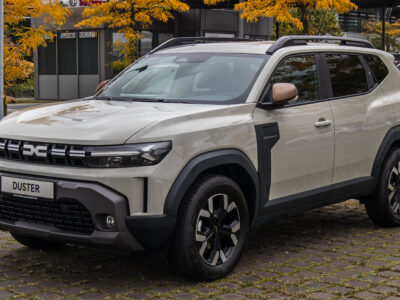
Can Ford Focus Tow a Trailer? The Ultimate Towing Guide

When you think of a Ford Focus, the first things that come to mind are practicality, fuel efficiency, and everyday reliability. But here’s the big question we often hear from drivers: Can a Ford Focus tow a trailer? The short answer? Yes—but with limits.
Let’s break this down like we’re chatting over coffee, diving deep into what the Focus can handle, what it shouldn’t, and how to tow safely without turning your car into a cautionary tale.
- Can a Ford Focus Tow a Trailer?
- Understanding Towing Capacity
- Towing Capacity by Ford Focus Generation
- Ford Focus Hatchback Towing Ability
- Ford Focus Sedan Towing Potential
- Ford Focus Wagon and Estate Models
- The EcoBoost Factor: Turbo Power and Towing
- Manual vs. Automatic Transmissions When Towing
- What You Can Tow With a Ford Focus
- Towing Equipment and Setup Essentials
- Braked vs. Unbraked Trailers—Know the Difference
- Safety Tips for Towing With a Focus
- Legal Considerations: Weight, Licenses, and Limits
- Signs You’re Overloading Your Focus
- Real-World Owner Experiences
- Maintenance Before and After Towing
- Pros and Cons of Towing With a Ford Focus
- Alternative Cars If You Need More Power
- Final Thoughts
- FAQs
Can a Ford Focus Tow a Trailer?
Yes, it can—but not every Focus is built for heavy-duty hauling.
Most Ford Focus models have a towing capacity between 1,000 and 2,000 pounds (450–900 kg), depending on the engine, trim, and transmission. That’s enough for small trailers, light campers, and compact utility trailers—but not for hauling your boat across the country.
The key? Knowing your model’s exact limits before hitching anything up.
Understanding Towing Capacity
Towing capacity refers to the maximum weight your vehicle can safely pull. This includes:
- Trailer weight (the trailer itself)
- Cargo inside (bikes, camping gear, etc.)
- Tongue weight (the downward force on your hitch)
Your Focus’s towing power depends on:
- Engine size and type
- Transmission (manual vs. automatic)
- Drivetrain configuration (FWD vs. AWD)
- Cooling system and suspension strength
So while your Focus might look like it can handle a load, exceeding its limits could overheat the transmission, strain the brakes, or even warp the chassis.
Towing Capacity by Ford Focus Generation
Let’s run through a quick breakdown by generation and engine:
| Model Year Range | Engine | Max Towing Capacity (Braked) | Max (Unbraked) |
|---|---|---|---|
| 2000–2007 (Mk1) | 1.6L–2.0L | 2,000 lbs (900 kg) | 1,100 lbs (500 kg) |
| 2008–2011 (Mk2) | 1.8L–2.0L | 2,200 lbs (1,000 kg) | 1,100 lbs (500 kg) |
| 2012–2018 (Mk3) | 1.0L EcoBoost–2.0L | 1,500–2,000 lbs (700–900 kg) | 1,000 lbs (450 kg) |
| 2019–Present (Mk4) | 1.0L EcoBoost–2.3L ST | 1,650–2,200 lbs (750–1,000 kg) | 1,100 lbs (500 kg) |
💡 Pro Tip: Always check your owner’s manual or the sticker on the driver’s door jamb for your exact towing specs.
Ford Focus Hatchback Towing Ability
The hatchback versions are the most common and surprisingly capable for light towing. Their shorter wheelbase gives good maneuverability, though the smaller engines (like the 1.0L EcoBoost) aren’t ideal for hills or long highway hauls.
Perfect for:
- Small garden trailers
- Lightweight cargo
- Single-axle campers
Avoid:
- Dual-axle trailers
- Boats or heavy equipment
Ford Focus Sedan Towing Potential
Sedans, with their slightly heavier build, provide better rear-end stability than hatchbacks. A 2.0L sedan can comfortably tow around 2,000 pounds, which makes it fine for:
- Jet skis
- Motorcycle trailers
- Pop-up campers
Still, keep your load balanced—sedans tend to fishtail more easily when overloaded.
Ford Focus Wagon and Estate Models
If you own a Focus Wagon (Europe loves them!), you’ve got the best towing candidate in the lineup. With longer bodies and stronger suspension, they can handle up to 2,200 pounds (1,000 kg) easily.
Wagons also benefit from:
- Higher cargo space
- Better stability due to weight distribution
- Optional towing packages in some trims
The EcoBoost Factor: Turbo Power and Towing
The EcoBoost engines are a game changer. Thanks to turbocharging, even the 1.0L can perform surprisingly well with smaller loads.
You may be interested in reading How Many Ford Focus Models Are There? A Complete Guide Through Every Generation
How Many Ford Focus Models Are There? A Complete Guide Through Every GenerationHowever:
- Turbo lag can affect initial pull
- Fuel efficiency drops significantly under load
- Cooling systems need to be in top shape
In short: Yes, your EcoBoost Focus can tow—but don’t treat it like an F-150.
Manual vs. Automatic Transmissions When Towing
If you have a manual Focus, congratulations—you’re already one step ahead for towing control. Manual gearboxes allow you to downshift for torque and prevent overheating.
Automatics, especially dual-clutch types, can overheat when pulling heavy loads for long distances. Always:
- Use Tow Mode (if available)
- Avoid stop-and-go traffic when towing
- Consider an auxiliary transmission cooler
What You Can Tow With a Ford Focus
Let’s get practical. Here’s what your Focus can confidently pull:
✅ Safe to Tow:
- Small utility trailer
- Jet ski trailer
- Small teardrop camper
- Kayaks or bikes
- Compact lawn trailer
🚫 Avoid Towing:
- Large boats
- Full-size travel trailers
- Horse trailers
- Heavy car haulers
Think of your Focus as the reliable friend who’ll help you move boxes, not your buddy with a pickup truck.
Towing Equipment and Setup Essentials
Before you hit the road, make sure you’ve got the right gear:
- Class I or II Hitch Receiver (rated up to 2,000 lbs)
- Wiring harness for brake lights and turn signals
- Safety chains
- Trailer brakes (if over 1,500 lbs)
- Tow mirrors for wider visibility
Also, double-check tire pressure—both on your car and the trailer. Underinflated tires can cause swaying and poor handling.
Braked vs. Unbraked Trailers—Know the Difference
A braked trailer has its own braking system, while an unbraked trailer relies solely on your car’s brakes.
This distinction matters because:
- Braked trailers allow for higher towing capacities (up to 2,000 lbs).
- Unbraked trailers are limited to about 1,000 lbs.
If you’re towing frequently, invest in a braked setup—it’s safer, smoother, and better for your car’s longevity.
Safety Tips for Towing With a Focus
Here are a few golden rules every Focus owner should remember:
- Distribute weight evenly. Keep about 60% of the load in front of the trailer axle.
- Avoid sudden steering inputs. Smooth is safe.
- Brake early and gently. Your car’s brakes are doing double duty.
- Don’t exceed 55 mph. Especially on highways with crosswinds.
- Use mirrors. Make sure you can see the trailer’s sides clearly.
Legal Considerations: Weight, Licenses, and Limits
Before towing, check your local laws. In both the U.S. and U.K.:
- You must not exceed the Gross Combination Weight Rating (GCWR).
- Trailer lights and license plates are mandatory.
- In the U.K., trailers over 750 kg require brakes.
- Some insurance policies may not cover unauthorized towing.
Don’t risk fines—or worse—by skipping the fine print.
Signs You’re Overloading Your Focus
Pay attention to these red flags:
- Sluggish acceleration
- Sagging rear suspension
- Increased braking distance
- Transmission overheating
- Trailer sway at highway speeds
If you experience these symptoms, stop and redistribute your load. Overloading is a shortcut to mechanical failure.
You may be interested in reading How Many Ford Focus Models Are There? A Complete Guide Through Every Generation
How Many Ford Focus Models Are There? A Complete Guide Through Every Generation Which Ford Focus Is the Fastest? The Ultimate Guide to Speed, Style, and Power
Which Ford Focus Is the Fastest? The Ultimate Guide to Speed, Style, and PowerReal-World Owner Experiences
Plenty of Focus owners have shared success stories towing:
- Small campers to weekend getaways
- Jet skis for lake adventures
- Utility trailers for yard work
However, some report reduced fuel economy (up to 30% worse) and transmission strain—especially on older models.
Lesson learned? Stay within limits, and your Focus will thank you.
Maintenance Before and After Towing
Before Towing:
- Check fluid levels (especially transmission and coolant)
- Inspect brakes and tires
- Test lights and hitch connections
After Towing:
- Let the engine idle before shutting down
- Inspect for leaks or burnt smells
- Check brake wear
Consistent care keeps your car towing-ready for the long haul.
Pros and Cons of Towing With a Ford Focus
Pros:
- Economical fuel use
- Easy to maneuver
- Affordable towing setups
Cons:
- Limited power for steep inclines
- Smaller braking system
- Transmission wear under heavy load
In other words, great for light-duty work—not your go-to for moving house.
Alternative Cars If You Need More Power
If you find your towing needs outgrow your Focus, consider:
- Ford Escape – Compact SUV with up to 3,500 lbs capacity
- Ford Edge – Great balance between comfort and pulling power
- Ford Maverick Hybrid – Efficient and rated for 4,000 lbs with towing package
You’ll still get Ford reliability—just with extra muscle.
Final Thoughts
So, can a Ford Focus tow a trailer?
Absolutely—but know its limits.
With proper setup, balanced loads, and regular maintenance, the Focus can tow small trailers with confidence and safety. Treat it with respect, and it’ll serve you faithfully—just don’t expect it to replace a truck.
Remember: towing isn’t just about power; it’s about preparation, precision, and patience.
FAQs
1. Can a Ford Focus tow a camper?
Yes, but only lightweight campers under 1,500 pounds. Always verify your Focus’s tow rating before attempting.
2. Do all Ford Focus models come with a tow package?
No, most don’t. You’ll need to install an aftermarket hitch and wiring kit.
3. Is towing bad for my Focus’s transmission?
Not if done within limits. Use manual control or tow mode and avoid overloading.
 How Many Ford Focus Models Are There? A Complete Guide Through Every Generation
How Many Ford Focus Models Are There? A Complete Guide Through Every Generation Which Ford Focus Is the Fastest? The Ultimate Guide to Speed, Style, and Power
Which Ford Focus Is the Fastest? The Ultimate Guide to Speed, Style, and Power Ford Focus or Golf: The Ultimate Showdown of Compact Legends
Ford Focus or Golf: The Ultimate Showdown of Compact Legends4. What’s the safest speed for towing with a Focus?
Stay around 50–55 mph, especially on open roads or in windy conditions.
5. Can a Ford Focus tow a boat?
A small aluminum fishing boat, yes. Larger boats? Not safely—leave that to SUVs or trucks.
If you want to know other articles similar to Can Ford Focus Tow a Trailer? The Ultimate Towing Guide you can visit the category Blog.
Leave a Reply

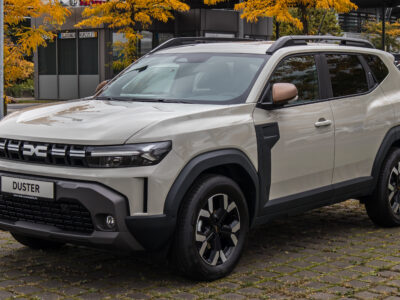
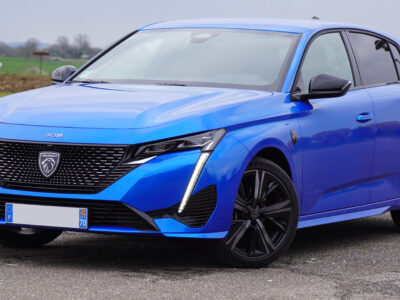
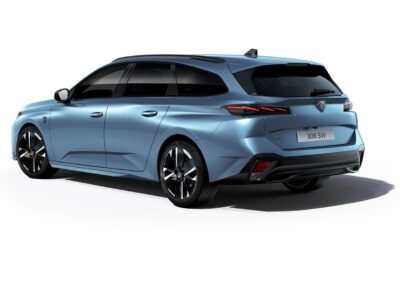
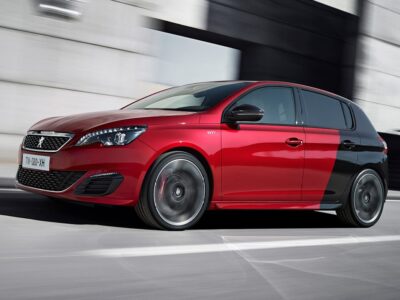
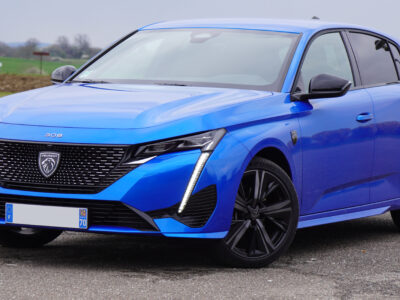
More content of your interest